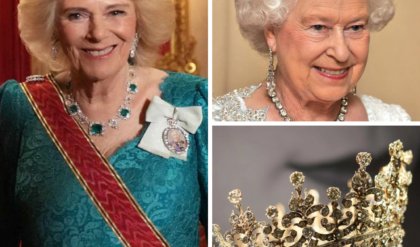Plus, Musk throws more shade at Apple and pledges to send humans to Mars within 10 years.

From Bloomberg/Getty Images.
Silicon Valley billionaire Elon Musk has been open about his fear of a Terminator-esque robot apocalypse. He’s so concerned about it, in fact, that last year he unveiled a $1 billion OpenAI foundation that will “benefit humanity as a whole,” he said at the time. Before our robot overlords take over, however, Musk has a more pressing concern, and it comes in the form of a giant tech company and its A.I. ambitions. At Vox Media’s Code Conference this week, the Verge’s Walt Mossbergasked the SpaceX and Tesla founder whether Google’s and Facebook’s artificial-intelligence research efforts concerned him. “I won’t name names, but there’s only one,” Musk said, implying he was worried about Google’s efforts. Google has made huge strides in artificial intelligence, between its Google Home device and DeepMind, the A.I. company Google bought in 2014. Facebook, too, has unveiled a complex A.I. system called DeepText that promises to analyze thousands of users’ posts per second.
Musk also elaborated on his OpenAI foundation onstage. “I don’t know a lot of people who love the idea of living under a despot,” he said, referring to his anxiety about a dystopian future in which society is overrun by robotic leaders—a sentiment shared by others in the Valley like Y Combinator’s Sam Altman. Some artificial intelligence, he was quick to add, can be used for good, too. “It’s really just trying to increase the probability that the future will be good,” he said. “If AI power is broadly distributed to the degree that we can link AI power to each individual’s will—you would have your AI agent, everybody would have their AI agent—then if somebody did try to something really terrible, then the collective will of others could overcome that bad actor.”
Musk only seems worried about Google as far as artificial intelligence goes. “Google’s done a great job at showing the potential of autonomous transport, but they’re not a car company,” Musk said. “So they’d potentially license to other companies. I wouldn’t say they’re a competitor.” When it comes to self-driving cars, he sees Apple as a bigger threat, though he warned that the hardware giant may have waited too long to get into the autonomous-vehicle game. “I would say that it’s great that they’re doing this and I hope it works out,” he added. “I think they should have embarked on this project sooner, actually … I don’t think they’ll be in volume production until 2020.” If that doesn’t sound mildly dismissive of Apple’s efforts, consider that in the same discussion, Musk suggested that by around that time, one of his own companies could be sending people to Mars. “If things go according to plan, we should be able to—we should be able to—launch people in 2024, with arrival in 2025,” the SpaceX C.E.O. said. “That’s the game plan.”





